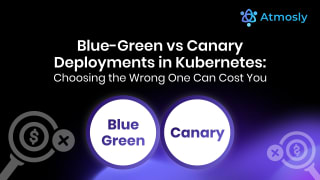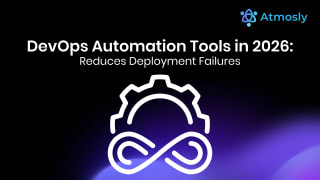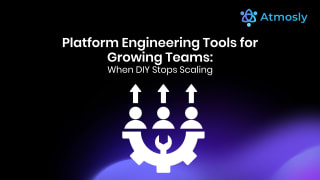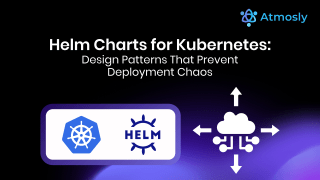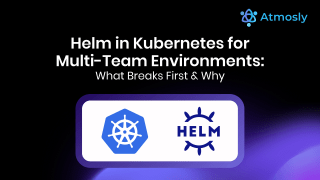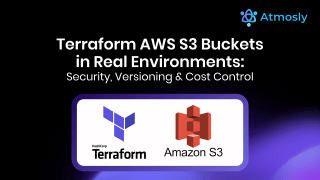As business cases and product delivery kept growing, there was a need for a culture that would encourage efficiency, scalability, flexibility, and even cost and an array of tools that would match the ever-growing software demand. DevOps, a combination of development and IT operation teams, helps establish the culture while platform engineering helps manage and maintain the arrays of tools. Through this article, you'll learn what DevOps vs Platform engineering are, best practices, benefits, roles, tools, and possible use cases.
Understanding DevOps
DevOps is a software development methodology that emphasizes collaboration, communication, and integration between software developers and IT operations teams. These methodologies or cultures aim to automate the process of software delivery and infrastructure changes, leading to faster development cycles, improved deployment frequency, and more reliable releases. Instead of having various teams work separately, DevOps integrates the development and Operation teams.
The goal is to break down the barriers between the development and IT operations teams by creating a culture of collaboration, enhanced communications, and shared responsibility. Remember, DevOps is not a specific tool or technology, rather it is a set of principles and practices that incorporate development and IT operation teams in the software development lifecycle. Simply put, look at DevOps as a culture or a software development philosophy that simplifies communications and collaboration between the development and operations teams.
Basic DevOps Core Principles:
DevOps is built on several core principles, often summarized by the acronym CALMS:
- Culture: Fostering a culture of collaboration and shared responsibility between development and operations teams.
- Automation: Automating the software delivery process to increase efficiency and reliability.
- Lean: Applying lean principles to eliminate waste and improve process efficiency.
- Measurement: Using metrics and data to drive decision-making and continuous improvement.
- Sharing: Encouraging the sharing of knowledge, tools, and best practices across teams.
Benefits of Adopting DevOps Practices:
DevOps practices in software development have various benefits as follows;

- Faster Delivery: DevOps practices such as continuous integration and continuous delivery (CI/CD) enable organizations to release software updates more frequently and reliably.
- Higher Quality: By automating testing and deployment processes, DevOps helps ensure that software is thoroughly tested and meets quality standards.
- Increased Efficiency: DevOps automation reduces manual effort, allowing teams to focus on higher-value tasks and improving overall efficiency.
- Improved Collaboration: DevOps encourages collaboration between teams, leading to better communication, shared goals, and improved outcomes.
- Greater Innovation: DevOps enables organizations to innovate more rapidly by providing a framework for experimentation, feedback, and continuous improvement.
Understanding Platform Engineering
Platform Engineering is a discipline within software development that focuses on creating and managing the platforms used by software engineers. These platforms employ the best practices, culture, tools, services, and processes needed for software development and deployment. Platform Engineering emerged from the need to streamline and optimize the software development lifecycle, making it more efficient and less prone to errors. Unlike traditional approaches, Platform Engineering promotes a collaborative environment, integrating various aspects of software development and operations into a unified workflow.
Role in Software Development:
Platform Engineering plays a crucial role in shaping the efficiency and effectiveness of a software development team. Its primary objective is to build and maintain a robust, scalable, and secure platform that accelerates software development and deployment processes. This involves automating workflows, ensuring system reliability, and providing essential tools and environments for developers like the internal developer portal. Platform Engineering also focuses on creating features that enhance the scalability and security of software development environments, including QA, staging, and production.
Benefits of Platform Engineering:

Platform Engineering practices in software development have various benefits as follows;
- Standardization: Platform Engineering promotes standardization of tools, processes, and infrastructure, which leads to consistency and predictability in software development and operations.
- Scalability: By designing platforms that can scale to meet the needs of the organization, Platform Engineering enables teams to handle increased workload and traffic without compromising performance.
- Improved Developer Productivity: Platform Engineering provides developers with the tools and infrastructure they need to be more productive, allowing them to focus on writing code and delivering features.
- Reduced Time to Market: By streamlining the software development lifecycle and providing developers with self-service platforms, Platform Engineering helps organizations bring products to market faster.
- Cost Efficiency: Platform Engineering helps organizations optimize resource usage and reduce wastage, leading to cost savings in infrastructure and operations.
Top 6 Key Similarities Between DevOps and Platform Engineering
- Collaboration: Both DevOps and Platform Engineering bridge the gap between development, operations, and other stakeholders to improve communication, efficiency, and outcomes.
- Automation: Both disciplines rely heavily on automation to streamline processes, reduce manual effort, and improve efficiency. Automation helps in tasks such as provisioning, deployment, and monitoring.
- Continuous Improvement: Both DevOps and Platform Engineering promote a culture of continuous improvement and learning. They encourage teams to regularly assess their processes, tools, and outcomes to identify areas for enhancement.
- Focus on Efficiency: Both disciplines focus on improving efficiency in software development and operations. They aim to streamline processes, eliminate waste, and optimize resource usage to deliver value to customers more effectively.
- Use of Metrics and Monitoring: Both DevOps and Platform Engineering rely on metrics and monitoring to measure the performance of software delivery and operations processes. They use these insights to identify bottlenecks, improve processes, and ensure quality.
- Adoption of Agile Practices: Both DevOps and Platform Engineering often adopt agile practices such as iterative development, continuous integration, and frequent feedback loops. These practices help teams respond quickly to changes and deliver software more efficiently.
Top 6 Key Differences Between DevOps and Platform Engineering
Although DevOps and Platform Engineering share several similarities, there are differences between them. They are as follows;
- Focus and Scope:
- DevOps: DevOps focuses on the entire software delivery lifecycle, from code development to deployment and operations.
- Platform Engineering: Platform Engineering focuses specifically on creating and managing internal developer platforms, providing tools and infrastructure for developers to build, test, and deploy applications, using DevOps methodologies.
- Responsibilities:
- DevOps: DevOps teams are responsible for implementing and automating CI/CD pipelines, managing infrastructure, and monitoring system performance.
- Platform Engineering: Platform Engineering teams are responsible for designing and maintaining internal developer platforms, ensuring platform stability, and supporting developer workflows.
- Tools and Technologies:
- DevOps: DevOps teams often use tools like Jenkins, Docker, Kubernetes, and Git for automating processes and managing infrastructure.
- Platform Engineering: Platform Engineering teams may use tools like Port, Atmosly, Quarry, and some platforms that create and manage developer platforms.
- Collaboration vs. Internal Platforms:
- DevOps: DevOps emphasizes collaboration between development, operations, and other stakeholders to improve communication and efficiency.
- Platform Engineering: Platform Engineering focuses on creating internal developer platforms that enable self-service provisioning and management of resources.
- Outcome vs. Infrastructure Management:
- DevOps: DevOps focuses on improving the speed, quality, and efficiency of software delivery, leading to faster time to market and better customer satisfaction.
- Platform Engineering: Platform Engineering is somehow similar but provides not only a cultural background that enables collaborations, speed, efficiency, and quality of software delivery. It goes beyond cultural requirements to provide a platform that enables users to manage infrastructure faster, seamlessly, and efficiently, in order to build scalable software solutions.
- Integration vs. Standardization:
- DevOps: DevOps emphasizes integrating development and operations processes to achieve seamless delivery of software.
- Platform Engineering: Platform Engineering emphasizes the standardization of tools, processes, and infrastructure to ensure consistency and scalability across the organization
Analysis of Complementary Aspects
DevOps and Platform Engineering complement each other in several key areas. Platform Engineering provides the foundational infrastructure that enables DevOps practices to be more effective. By creating a stable and scalable platform, Platform Engineering sets the stage for DevOps teams to implement continuous integration and delivery practices. This synergy ensures that the infrastructure is not only reliable but also flexible enough to adapt to the rapid changes characteristic of DevOps workflows.
Furthermore, DevOps practices enhance the effectiveness of Platform Engineering by promoting a culture of collaboration and automation. DevOps teams work closely with Platform Engineers to automate workflows and streamline processes, leading to faster deployment times and improved software quality.
Impact on Organizational Structures and Software Development Processes
The combination of DevOps and Platform Engineering has a transformative impact on organizational structures and software development processes. It leads to a more integrated approach, where teams work collaboratively towards common goals. This integration creates a culture of innovation and continuous improvement, which is crucial in today's fast-paced tech environment.
In terms of team productivity, the blend of these disciplines offers a streamlined workflow with fewer bottlenecks. Thanks to the stable platforms provided by Platform Engineering, developers can focus more on writing code and less on underlying infrastructure challenges. Simultaneously, the adoption of DevOps practices ensures rapid deployment and feedback, leading to quicker iterations and a more responsive development cycle.
In conclusion, merging DevOps and Platform Engineering offers a unified approach to software development that enhances efficiency, improves collaboration, and drives innovation. By leveraging the strengths of both disciplines, organizations can create a more integrated and effective software development lifecycle.
Top 6 Roles and Responsibilities in DevOps and Platform Engineering
DevOps Engineer:
Responsibilities: Implementing and automating CI/CD pipelines, managing infrastructure, and monitoring system performance. DevOps engineers work to improve collaboration between development and operations teams, streamline software delivery processes, and ensure the reliability and security of software deployments.
Platform Engineer:
Responsibilities: Designing and maintaining internal developer platforms, ensuring platform stability, and supporting developer workflows. Platform engineers focus on creating self-service portals, automation scripts, and templates that enable developers to provision and manage resources efficiently.
Site Reliability Engineer (SRE):
Responsibilities: Ensuring the reliability, availability, and performance of software applications and services. SREs use a combination of software engineering and operational expertise to design, build, and maintain scalable and reliable systems.
Cloud Engineer:
Responsibilities: Managing cloud infrastructure, including provisioning, configuring, and optimizing cloud resources. Cloud engineers work to ensure the security, scalability, and performance of cloud-based applications and services.
Release Manager:
Responsibilities: Planning, coordinating, and overseeing the release of software applications and updates. Release managers work closely with development, operations, and other teams to ensure that software releases are delivered on time and meet quality standards.
Automation Engineer:
Responsibilities: Developing and maintaining automation scripts and tools to streamline software development and operations processes. Automation engineers work to reduce manual effort, improve efficiency, and ensure consistency in software delivery and operations.
Top DevOps and Platform Engineering tools

Top DevOps Tools
DevOps has revolutionized the way software is developed, tested, and deployed. To support its principles, a plethora of tools have emerged, each designed to streamline different aspects of the software delivery pipeline. Top DevOps tools are as follows:
- Jenkins: Jenkins is an open-source automation server that enables developers to automate the building, testing, and deployment of their software. Among its features is the provision of hundreds of plugins to support building, deploying, and automating any project.
- Docker: Docker is a containerization platform that allows developers to package applications and their dependencies into containers, which can then be deployed consistently across different environments. Docker has revolutionized the way applications are deployed, making them more portable and scalable.
- Ansible: Ansible is a powerful automation tool that allows developers to automate the configuration, deployment, and management of infrastructure. It uses a simple syntax and requires no agents, making it easy to use and deploy.
- Kubernetes: Kubernetes is an open-source container orchestration platform that automates the deployment, scaling, and management of containerized applications. It provides a platform for automating the deployment, scaling, and operations of application containers across clusters of hosts.
- Git: Git is a distributed version control system that allows developers to track changes in their codebase, collaborate with others, and manage their codebase more effectively. It is widely used in DevOps workflows to manage code changes and track project history.
- Puppet: Puppet is a configuration management tool that allows developers to automate the provisioning, configuration, and management of infrastructure. It helps in maintaining infrastructure as code and ensures consistency across different environments.
- Grafana: Grafana is an open-source monitoring and visualization platform that allows developers to create, explore, and share dashboards of data. It provides insights into the performance and health of applications and infrastructure.
- Prometheus: Prometheus is an open-source monitoring and alerting toolkit designed for reliability and scalability. It collects metrics from configured targets at given intervals, evaluates rule expressions, displays the results, and can trigger alerts if some condition is observed to be true.
- Terraform: Terraform is an open-source infrastructure as a code software tool created by HashiCorp. It enables users to define and provision data center infrastructure using a high-level configuration language known as HashiCorp Configuration Language (HCL), or optionally JSON.
- Selenium: Selenium is a portable framework for testing web applications. Selenium provides a playback tool for authoring functional tests without the need to learn a test scripting language (Selenium IDE).
Top Platform Engineering Tools
- Atmosly: Atmosly simplifies container management using Kubernetes, providing a user-friendly interface for deploying, managing, and scaling containerized applications. It automates container configuration, scaling, networking, and security, making it ideal for application packages with many containers.
- Crossplane: Crossplane allows you to build a control plane tailored to your unique needs in days without writing complex distributed systems code. It orchestrates everything, not just containers, extending the reliability and security of Kubernetes.
- GitLab CI/CD: GitLab CI/CD automates the build, test, deploy, and monitor processes of software development. It catches bugs and errors early, ensuring that all code deployed to production complies with established standards.
- ArgoCD: ArgoCD is a Kubernetes-native continuous deployment (CD) tool that allows developers to manage both infrastructure configuration and application updates in one system. It supports manual or automatic deployment of applications to a Kubernetes cluster.
- Docker: Docker enables developers to efficiently build, test, deploy, run, update, and manage applications in resource-independent environments. It is widely used for containerization and microservices in Platform Engineering.
- Terraform: Terraform is an open-source infrastructure as code tool that allows you to create, modify, and improve infrastructure without manual intervention. It supports managing infrastructure across various providers, including AWS, Azure, and Google Cloud.
- Doppler: Doppler serves as an encrypted source of truth for teams, allowing them to organize app secrets across projects and environments. It enables collaboration and automates the process of managing secrets.
- Datadog: Datadog is a monitoring and analytics platform for cloud-scale applications, providing full-stack observability. It collects, visualizes, and correlates metrics and logs across infrastructure, facilitating real-time insights and proactive monitoring.
Case Studies and Examples
Netflix:
- DevOps Practices: Netflix has implemented DevOps practices to improve its software delivery and operations. The company uses a combination of automation, continuous integration, and continuous deployment to deliver updates to its streaming service rapidly.
- Impact: These practices have enabled Netflix to release new features and updates quickly, leading to improved customer satisfaction and a competitive edge in the streaming market.
Spotify:
- Platform Engineering Practices: Spotify has invested heavily in platform engineering to build internal developer platforms that enable its engineering teams to deploy and scale their services independently.
- Impact: By empowering its engineering teams with self-service platforms, Spotify has improved developer productivity, reduced time to market, and increased the reliability of its services.
Amazon Web Services (AWS):
- DevOps and Platform Engineering: AWS is a leading provider of cloud computing services that has embraced both DevOps and Platform Engineering practices.
- Impact: By leveraging these practices, AWS has been able to rapidly innovate and scale its services, providing customers with reliable and scalable cloud solutions.
Facebook:
- DevOps and Automation: Facebook uses DevOps practices and automation extensively to manage its infrastructure and deploy new features to its platform.
- Impact: These practices have enabled Facebook to scale its platform to billions of users while maintaining high availability and reliability.
Google:
- Site Reliability Engineering (SRE): Google pioneered the concept of Site Reliability Engineering (SRE), which combines software engineering and operational expertise to build and maintain large-scale, reliable systems.
- Impact: SRE practices have helped Google improve the reliability and scalability of its services, ensuring a seamless user experience for its customers.
Future Trends in DevOps and Platform Engineering
There are emerging trends and technologies shaping the future of software development and operations. These trends and technologies enable organizations to build more scalable, reliable, and secure applications. By embracing these trends, organizations can stay ahead of the curve and deliver value to their customers more effectively.
- Kubernetes and Containerization: Kubernetes has become the de facto standard for container orchestration, enabling organizations to easily deploy, scale, and manage containerized applications. The adoption of Kubernetes is expected to continue to grow, leading to more efficient and scalable software delivery pipelines.
- GitOps: GitOps is an emerging approach to continuous delivery that uses Git as a single source of truth for infrastructure and application deployments. This approach improves collaboration and enables developers to manage infrastructure as code more effectively.
- Serverless Computing: Serverless computing abstracts away the underlying infrastructure, allowing developers to focus on writing code without worrying about managing servers. This trend is expected to continue to grow, leading to more agile and cost-effective software development processes.
- AI and Machine Learning: AI and machine learning technologies are being increasingly integrated into DevOps and Platform Engineering practices to automate tasks such as code testing, monitoring, and optimization. These technologies are expected to improve the efficiency and reliability of software delivery pipelines.
- Edge Computing: Edge computing brings computation and data storage closer to the location where it is needed, reducing latency and improving performance for distributed applications. DevOps and Platform Engineering practices will need to evolve to support edge computing architectures.
- Security Automation: Security automation is becoming increasingly important in DevOps and Platform Engineering practices to identify and mitigate security vulnerabilities early in the software development lifecycle. This trend is expected to continue to grow, leading to more secure software delivery pipelines.
Conclusion
DevOps and Platform Engineering are two distinct but complementary approaches to modern software development and deployment. DevOps focuses on the relationship between the development and IT operations teams to automate, collaborate, and continuously improve development cycles and higher-quality releases. On the other hand, Platform Engineering provides the foundational infrastructure and tools empowering developers to build and deploy software efficiently.
Despite the differences between DevOps and platform engineering, DevOps and Platform Engineering share common goals of improving efficiency, reliability, and scalability in software development. Both approaches aim to enhance the overall software development lifecycle by implementing automation, continuous integration, and deployment practices. Additionally, they both prioritize the use of tools such as Atmosly, Port, Kubernetes, Docker, Terraform, and GitLab CI/CD to streamline workflows and improve productivity.
Conclusively, both DevOps and Platform Engineering play crucial roles in modern software development, offering complementary approaches to improving efficiency, reliability, and scalability. By understanding the differences, similarities, and benefits of these methodologies, organizations can create a more effective and efficient software development process.

